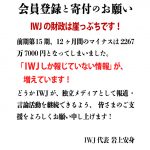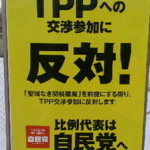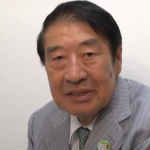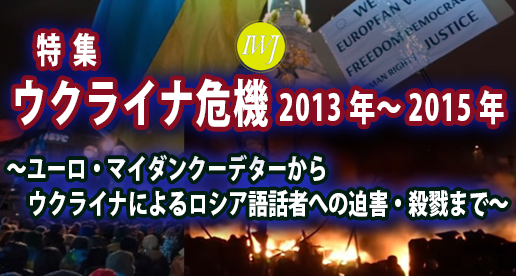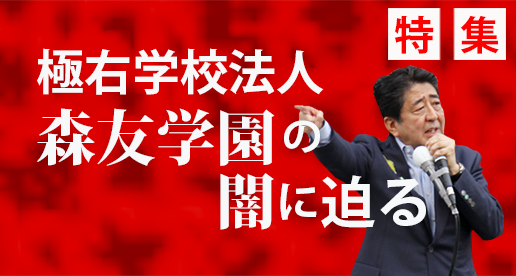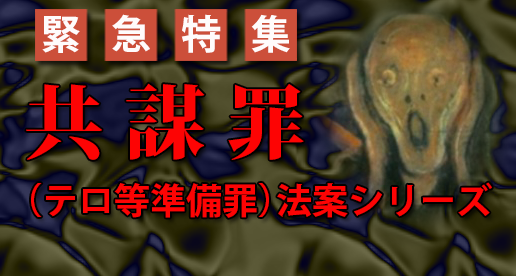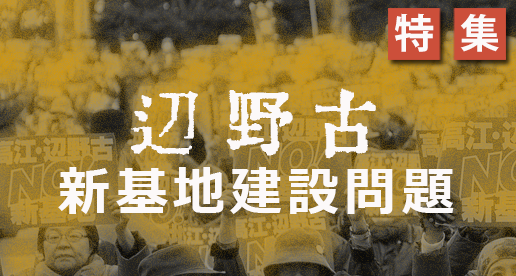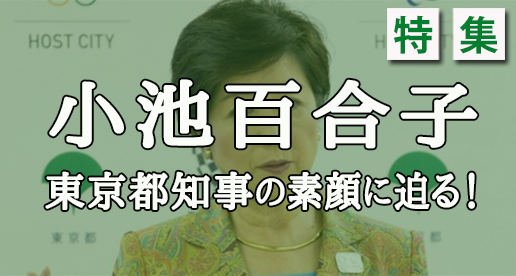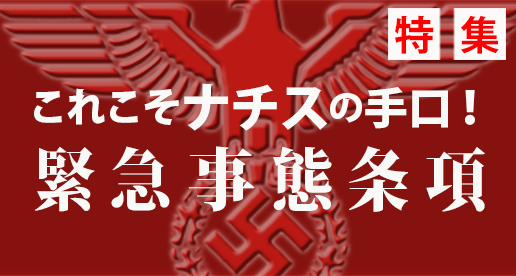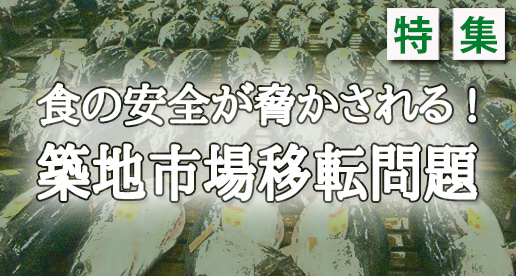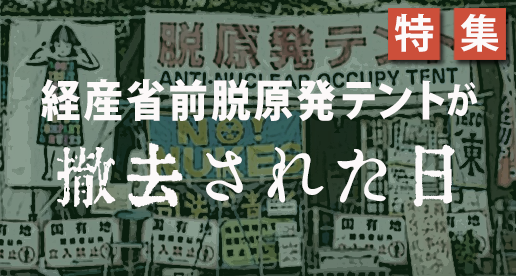「党派を超えてTPP問題を考える国会議員を結集し、各国のTPP交渉官に日本国内の事情を説明すべきだ」
ニュージーランド・オークランド大学のジェーン・ケルシー教授と、米NGOパブリック・シチズンのロリ・ワラック代表が連名で、今月から行われるTPP(環太平洋経済連携協定)のブルネイ会合に向けて、日本の政治家に訴えかけていることが、前衆議院議員で「TPPを考える国民会議」副代表の山田正彦氏に送られたファックスで明らかになった。
ファックスは2013年8月15日付で、山田氏が自身のフェイスブックに文面の画像を投稿した。2枚の本文と、ブルネイ首席交渉官への手紙の文案からなり、本文にはケルシー氏とワラック氏の署名が入っている。
両氏は文面の中で、今月22日よりブルネイで行われる第19回TPP会合が、日本にとって事実上最初で最後の交渉となる可能性があると指摘。その上で、農産品5品目の関税の「聖域」を守るという自民党の公約や農林水産委員会の決議内容が、各国の交渉官にほとんど知られていないと警告している。また、国民皆保険の堅持など、安倍内閣が国内向けに約束しているその他の条件についても、各国の交渉官には伝わっていないと述べている。
TPP交渉締結の最終段階において、日本国内の実情や日本国民の要求を理解してもらうためには、日本の国会議員が、TPP参加国すべての首席交渉官を招いて話し合いを行う場を設定するべきであると、両氏は提案している。
ケルシー氏とワラック氏は、長年ステークホルダー(利害関係者)としてTPPの問題を指摘してきた、TPP秘密交渉の内情を深く知る数少ない有識者である。その両氏による今回の提案は、ブルネイ会合における日本の交渉の行方に関して、大きな意味や実現可能性を持つと思われる。
前回のマレーシア会合には、自民党から党TPP対策委員会の西川公也委員長ら4人の議員団が派遣された(日本経済新聞 2013年7月11日 「TPP会合、自民も議員団」 http://s.nikkei.com/16ulKnL)。今回のブルネイ会合には、山田正彦氏のほか、民主党の篠原孝衆議院議員、首藤信彦前衆議院議員、山崎まや前衆議院議員、無所属の山本太郎参議院議員、生活の党の三宅ゆき子前衆議院議員らが参加の予定である。
今回、山田正彦事務所の了解を得て、山田氏が投稿した画像から判別できたファックス本文の原文とその邦訳を掲載する。一部画像が切れていたり、文字が解読不能な部分に関しては、原文の中で( )や****とし、意味を推定して翻訳した。原文のコピーを入手次第、適宜修正を加える予定である。(IWJ・野村佳男)
———————————————————————-
山田正彦 殿
TPPを考える国民会議副代表
2013年8月15日
山田正彦様、
貴殿がTPP交渉のブルネイ会合に参加される予定だと聞いています。とても喜ばしいことです。貴殿の参加は、日本のTPP交渉参加に関する条件について、他のTPP参加国の上席交渉官と情報を共有する、大変重要な機会となることでしょう。
TPP交渉に関してより包括的、かつより良い知見に基づいた交渉作業を確実にするために、また農林水産委員会の決議など、正当な日本の国益を守るために、TPP問題に誠実に関わっておられる自民党と民主党の国会議員の方々が協力されることを、謹んで提案し、要請いたします。
農産品5分野の(関税撤廃の)例外や投資家—国家間制度の排除、聖域として守るべき国民健康保険制度やそれに関連する薬価制度など、日本が国内で設けている条件について、TPP交渉官はほとんど知りません。とりわけ、これらの事項について自民党の公約があるということも知りません。日本との並行協議においてTPPと同じ問題が討議され、日米間で(TPPと)異なる交渉結果が生ずる可能性があることについて知らない交渉官もいます。同様に、TPPを計画通り拙速に締結することで、日本で大きな反発が生じ、日本を含めた形でのTPP成立という目標自体がダメになる可能性のあることも認知されていません。ブルネイ会合が日本にとって最初で最後のTPP交渉会議になることは、他国の交渉官にとっても利益にならないことを、彼らが理解することが重要です。
ここ3年ほどのTPP交渉会議への参加や交渉官との会合から、首席交渉官ですら他のTPP参加国の重要な国内政策事項について知っているわけではないことが分かりました。重要な局面において、我々はそのような情報を提供し、交渉に影響を及ぼしてきました。重要な政策事項がわからなければ、ある国の首席交渉官や彼らのチームは、他の国に対して実行不可能な条件を引き受けるよう要求することになりかねません。時に、そのような圧力が強くかかると、国内における実情にもかかわらず、条件を引き受けてしまう国が出てくる可能性もあります。これは大変危険なことです。なぜなら、各国の国内的な状況を配慮しない「合意」となってしまうからです。そうなると、「最終」合意を各国の議会に持ち帰ったとき、議会には国内の目標や条件を満たさない合意事項を承認するよう、大きな圧力がかかることになります。他のTPP参加国から、「合意事項を変更するのは手遅れであり、承認しなければ外交上ダメージとなる」という申し立てを受けることになるでしょう。しかし、首席交渉官が十分な情報を持っていれば、大概彼らはアプローチを変更してくれます。
交渉官たちは、相当進んだ段階に来ています。このブルネイ会合が最後のTPP協議となると、すでに宣言されています。日本にとっての関心事である規定についてのテキストの大半は、すでに完了してしまっています。その結果、特定の問題に関して交渉官に働きかけるのは、もはや手遅れです。ですから、日本について欠けている重大な情報を伝えることが、大変重要になります。
この段階においては、国会内で確認された国内条件について、直接首席交渉官に要約を伝えることが大切です。なぜなら、彼らはちょうど、政治的決断をして、それを大臣に報告するところだからです。
首席交渉官と会合を持つのは難しいでしょう。個々の首席交渉官との会合を持てたとしても、短時間でしょうし、効果的なやり取りをするのに相応しい環境ではないかもしれません。(例えば、コンベンションセンターのロビーでとか)。しかし、ホスト国の首席交渉官であれば、例えば昼食会や、重要情報を提供するという信頼のある人が話す会議などであれば、各国の首席交渉官を一同に集めてグループ会合を設定してくれるかもしれません。ブルネイでの協議では、低価格で買える医薬品の問題に関して、そのような会合がすでに設定されています。
首席交渉官たちは、ブルネイ会合で交渉を終わらせようと、非常にせわしない状況にいるでしょう。首席交渉官全員を招いた昼食会あるいは他の会議を設定する手助けをしてもらうよう、ブルネイの首席交渉官に緊急のリクエストを出すことを、謹んで提言いたします。(そのための手紙の文案を同封いたしました。)都合の良い日時や場所が決まり次第、国会議員の代表から首席交渉官全員宛てに招待状を送るということが非常に重要になります。
首席交渉官全員との会議を持つために、ブルネイの首席交渉官への手紙や首席交渉官への招待状には、彼らにとって重要かつ有益な情報を提供する旨を明示する必要があります。ですから、あなたが持ちかける論点は、日本で幅広い支持を受けているということを彼らに理解させることが必須です。特に、自民党と民主党の両党の国会議員、さらにTPPについて国民の関心を代表するような重要人物が話すような会議を提案することが大事です。このことは大変重要で、なぜならこの最終段階において首席交渉官たちは、日本国内で広く共有されている政策的現実にのみ関心があり、それによって彼らがTPPへのアプローチを再考しなければならないと思うような事柄でなければならないからです。彼らが医薬品の会議に参加するのも、それが理由です。その問題が合意の締結を阻む可能性があると彼らが認識しているからなのです。一つの党、もしくは党の一派、あるいは国の一部のみを代表するような情報だと彼らが思えば、彼らは興味をもたず参加しないでしょう。
貴殿がこの提案を考慮していただけることを願っています。これまで何年かのTPP交渉の経験から、このような会議は交渉に多大なインパクトを与えることを、我々は確信しています。とりわけ、ブルネイ会合で急いで締結し10月のAPECサミットで承認するというのではなく、日本が交渉において目標を達成するために、より包括的でより良い知見に基づいた交渉作業を行っていくことは、明らかに違いをもたらすことでしょう。
敬具
ジェーン・ケルシー
法律、政策、国際経済規制 教授
オークランド大学
ロリ・ワラック
ディレクター
パブリック・シチズン グローバル・トレード・ウォッチ
同封 ブルネイ首席交渉官への手紙文案
(原文)
Mr. Masahiko YAMADA
Vice Representative of the National Conference to Consider the TPP
August 15, 2013
Dear Mr. Masahiko YAMADA,
We understand that you will be attending the Brunei Round of TPP negotiations. This is very welcome news. Your attendance provides an extremely important opportunity to share information with the senior negotiators from other TPP countries about the conditions relating to Japan’s participation in the TPP negotiations.
We are writing to respectfully propose and request the cooperation of LDP and DPJ Diet Members sincerely engaged in the TPP matter to assure a more inclusive and informed process of the TPP negotiations and to protect the righteous national interests of Japan, such as the resolution at the Agriculture, Forestry and Fisheries Committee.
The TPP negotiators are largely unaware of the conditions that have been set domestically in Japan regarding exclusion of the five agricultural commodities, exclusion of the investor-state system, the sanctity of the national health care system and related affordable medicine pricing policies and more. Indeed, most are unaware that there is a formal LDP policy on these matters. Some countries’ negotiators also do not seem to be aware that the parallel negotiations with Japan on many of the same issues they are discussing amongst all the parties could result in a different set of obligations between the US and Japan. As well, they are unaware that speedily finishing the TPP as they now plan could generate a severe backlash in Japan that could undermine their own goals of ultimately implementing TPP with Japan included. It is critical that they understand that it is not in their own interest if the Brunei Round becomes both the first full round in which Japan can participate and the last round of TPP negotiations.
From our three years of attending TPP negotiating rounds and meeting with negotiators we have (learned) that often even the Lead Negotiators are not aware of critical domestic political and policy considerations in the other TPP countries. In key instances, we have been able to provide such information, which has affected the negotiations. When important political and policy information (isn’t) known, the Lead Negotiators and their negotiating teams of one country can insist that another (country) accepts positions that it cannot deliver. Sometimes that pressure can be so intense that a country accepts despite those domestic realities. This is very dangerous: it can lead to an “agreement” that does (not) respect countries’ domestic circumstances. A “final” agreement is then brought back to a national parliament and the parliament is extreme pressure to approve an agreement that do not (meet) domestic goals and conditions. The parliament will be confronted with claims from the other TPP (country) that it is too late to change the agreement’s terms and that rejection will cause damage to the (country’s) foreign policy. But, when the Lead Negotiators have full information they often alter their (approach).
The negotiators are at such an advanced stage. This Brunei Round having been declared as the (final) round of TPP negotiations. Most of the TPP texts that set the rules on the issues of concern to Japan have been completed. As a result, it is too late to meet with the negotiators working on specific (issues). How to communicate the crucial missing information about Japan is therefore very important.
At this stage, it is critical that the Lead Negotiators are briefed directly about the domestic conditions that have been identified within the Diet because they will now make the political decisions and advise their ministers.
It is difficult to obtain meetings with the Lead Negotiators. Meetings with individual Lead Negotiators will be very brief if they can be arranged and often the meeting is not suited to effective communications. (For instance, in the Convention Centre’s lobby.) However, the Host Country’s Lead negotiator may help to facilitate a group meeting of all of the Leads in one session, for instance a luncheon or another session at which ****** persons are speaking who they believe will provide them important information. At the Brunei Round, this has already been arranged with respect to affordable access to medicines issues.
The Lead Negotiators will very distracted with trying to complete the negotiations at the Brunei Round. We respectfully recommend that you issue an urgent request to the Brunei Lead negotiator to help you ******* a luncheon or other session for all of the Lead Negotiators. (We have included a draft letter you could send to this effect.) After ascertaining a workable date, time and location, it will be extremely important for an invitation letter to be sent to all of the Lead Negotiators from several representatives of the Diet.
In order to obtain a session with all of the Lead Negotiators, your communication to the Brunei Lead and the invitation letter to the Lead Negotiators must demonstrate that you will provide information that is important to and useful for them. Thus, it would be essential for them to understand that the issues that you will address have broad support in Japan. In particular, it would be critical for you to propose a session at which both an LDP and a DPJ Diet member would speak, as well as someone of importance representing the public’s concerns about TPP. This is vital because at this late stage the Lead Negotiators will only be interested in knowing about widely held domestic political and policy realities in Japan that they must consider in their approach to TPP. That is why they will attend the session on medicines – they know that this issue could undermine the completion of the agreement. If the Lead Negotiators can dismiss information as only presenting one party or one caucus within a party or one segment of a country, they will not be interested and will not attend.
We hope that you will give this proposal consideration. From our past experience over the years of TPP negotiations, we can assure you that such a session could have enormous impact on the negotiations. Indeed, it could make the difference between a rush to complete a deal at the Brunei Round, which is the heads of the state endorse at the October APEC summit, versus a more inclusive and informed process that could meet Japan’s goals in these negotiations.
Respectfully yours,
Jane Kelsey
Professor of Law, Policy and International Economic Regulation
University of Auckland
Lori Wallach
Director
Public Citizen’s Global Trade Watch
DRAFT LETTER TO THE BRUNEI LEAD NAGOTIATOR
